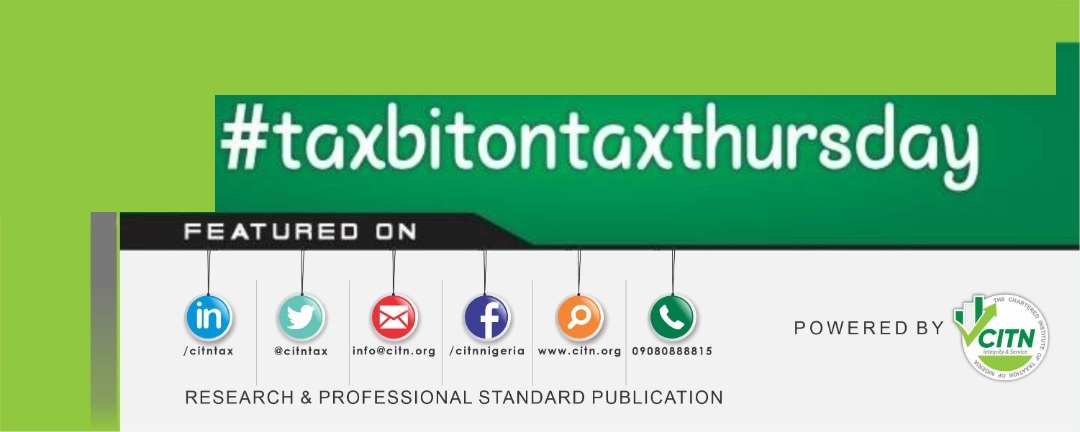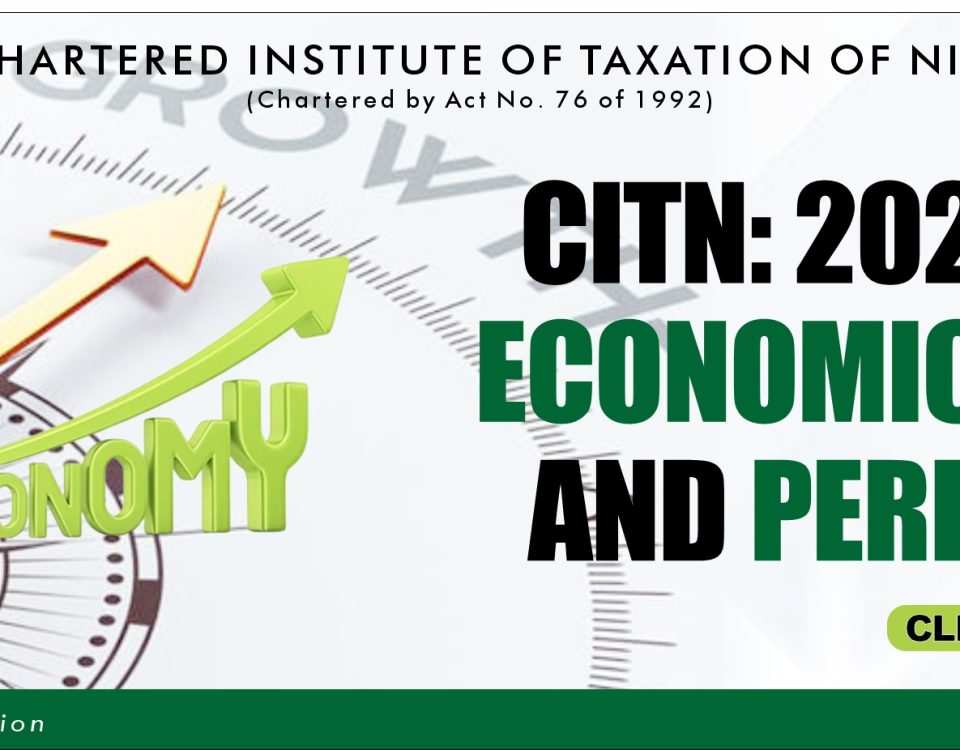- Have any questions?
- 09080888815
- 092918349
- citn@citn.org
Taxation of Individuals Other Than Employees in Nigeria: Compliance Guideline

Minimum Tax: Application to Nigerian Companies
July 15, 2021
Taxing Rights and Global Minimum Tax Rate – An End To Profit Shifting
July 15, 2021At this time of the year, every individual that earns an income is expected to have filed personal income tax returns with the relevant authorities. Section 37 of PITA (as amended) imposed the payment of income tax on the chargeable income of an individual which must be filed within 90 days from the commencement of the year (Sec. 41). Personal Income Tax is charged on the income of sole traders, self-employed, partnership, trustees, and executors.
In Nigeria, personal income tax is based on residency rule. Thus, an individual will be a tax resident if the Individual;
- Works fully (or partially) in Nigeria or
- Owns and manages a business other than incorporated company in Nigeria or
- Has a fixed business base in Nigeria.
Significant economic presence for individuals
Notably, the Finance Act (FA) 2020 introduced the significant economic presence rule for personal income tax (PIT). The gains or profits of the trade or business will be taxable in Nigeria when an individual, executor, or trustee outside Nigeria provides technical, management, consultancy, or professional services to a person resident in Nigeria. The withholding tax (WHT) on such income will be the final tax. Currently, the WHT rate for transactions of this nature is 5%. As SEP considers cross border activities, a Non-Resident Person (NRP) may seek tax relief under a double tax treaty. Furthermore, the Minister of Finance may issue an Order to define the activities that constitute significant economic presence under PIT.
Chargeable income
Once an employee is a tax-resident in Nigeria, income tax will be payable on the worldwide income. Worldwide income refers to income received within and outside Nigeria. Thus, income chargeable to PIT includes income from all sources minus all non-taxable income, income on which no further tax is payable, tax-exempt items, allowable business expenses, and capital allowance.
The statutory tax allowances and reliefs granted include:
- Premium paid in the prior year for a life insurance policy of a person or a spouse.
- Contribution(s) to an approved pension fund, National Health Insurance Scheme, National Housing Fund
- Gratuities
- Consolidated relief allowance or CRA; that is the higher of NGN200,000 per annum or 1% of annual gross income, plus 20% of the gross income per annum. Note that the new definition of gross income is gross emoluments minus all statutory reliefs.
Personal Income Tax rates
The applicable tax rate progresses from 7 percent to 24 percent of taxable income band. The income band ranges from =N=300,000 to above =N=3.2 million in a year. The rates and the resultant taxes are as contained in the schedule below:
| Annual taxable income (=N=) | Rate | Tax payable per annum (=N=) |
| First =N=300,000 | 7% | 21,000 21,000 |
| Next =N=300,000 | 11% | 33,000 33,000 |
| Next =N=500,000 | 15% | 75,000 75,000 |
| Next =N=500,000 | 19% | 95,000 95,000 |
| Next =N= 1,600,000 | 21% | 336,000 336,000 |
| Above NGN3,200,000 | 24% |
Multiply only the excess amount over NGN3.2 million by 24%. For example, an annual taxable income of =N=6 million is (N6 -3.2) million * 24% = =N=672,000
A minimum tax of 1 percent of gross income will apply where an individual has no taxable income or where the resultant tax is less than the minimum tax.
Conclusion
The Institute expects members who hold themselves out as tax practitioners to assist in the drive to enshrine the culture of full compliance to extant tax laws in the country. This places a responsibility on practitioners, not only to ensure that their clients are compliant, but also, to individually ensure that they comply with their personal income tax responsibilities.
Secondly, practitioners should endeavor to ensure that members of staff in their employment are compliant to the Personal Income Tax Act.
Thirdly, there are many individuals yet to be in the tax net. Education, enlightenment and awareness are required to drive up the rate of compliance. There is need for tax practitioners to assist the government by educating clients, colleagues and members of the public in addition to the efforts of the Institute towards full compliance with the extant tax laws in Nigeria.



